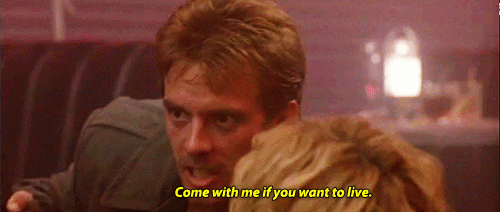 Last week I facilitated the final college prep session of the semester at the O.H. Close Youth Correctional Facility. It is work I am doing through the Prison Education Project.
Last week I facilitated the final college prep session of the semester at the O.H. Close Youth Correctional Facility. It is work I am doing through the Prison Education Project.Each week, three student volunteers and I ran an early-evening session in the correctional facility's library. We ran discussions and activities with 17 wards, all of whom had expressed interest in going to college when released.
The profound impact this experience had on me was made clear during the second-last session when one of the young men told me he wanted to ask a question unrelated to the group activity we were doing. It was a challenging and insightful question.
This young ward of the juvenile correctional facility asked me,
"Are we different?"
He went on to clarify what he meant. He knew about my work as a professor. I had talked to him about my 12 years of experience working with incoming freshmen. He wanted to know, based on my time at O.H. Close, is there something that differentiates a minor convicted of a crime from the other students I've worked with.
I told him it was a brilliant question. The other three at our table knew it was brilliant too. They leaned in to hear how I would respond.
I told them, as is the case with any brilliant question, there isn't a simple answer.
I was stalling for time.
I started by saying, I treat all my students like adults. Each student may have a different set of needs, but that does not change how I think about them as a person. My students are grown people who deserve my respect. That's where things start.
Then I explained how I approached the college prep sessions at O.H. Close. I had made a conscious effort to treat the young men at the facility like incoming freshmen. I delivered each session in the same way I would have delivered an orientation for new students on campus.
I told the guys that I did not treat them differently and they had never given me a reason to treat them differently.
I looked at the young man who had asked the question and said, "But that isn't really a complete answer to your question." And I shook my head. "This is a tough one. This is a challenge. You're challenging me. You know that, right?"
And he laughed, because he did know. The other guys laughed as well.
And that's when I told him what I thought. The life experience that lands people in a youth correctional facility, and the experience of living in a youth correctional facility, those things shape a person. Those things don't disqualify a person from the college experience. They don't make a person less...
But if my answer suggested that these young men's college experiences were going to be similar to my own, I would have been lying. Sure, I could have fallen back on the cliché: All students are unique, and each faces their own personal challenges.
But these young men know what it is to be fed into a system that enforces its expectations.
And colleges do that.
In many ways, by enrolling in classes and declaring a major, these young men would be defying the expectation colleges have.
I said all this.
I told them to take pride in that kind of defiance.
But I also said that their life experience would make their college experience different.
And I admitted I didn't know how it would feel to be them on a college campus. A lot of people wouldn't know, and that was going to be a challenge at times.
But I think it's a pretty cool challenge. I asked the guys if they could see it that way.
Then I looked at the young man who had asked me the question in the first place, and I asked, "How'd I do?"
And he knew what I was asking.
That's the impact this had on me.
I now know why I have to keep asking how I did.
Because we are different, and that's a challenge.
When I argue with people who see the world differently than I do.
When I design a course.
When I assess a placement exam.
When I react to an election.
When I stand up for people.
When I stand up to people.
Each time I have to keep asking myself: How'd I do?









































